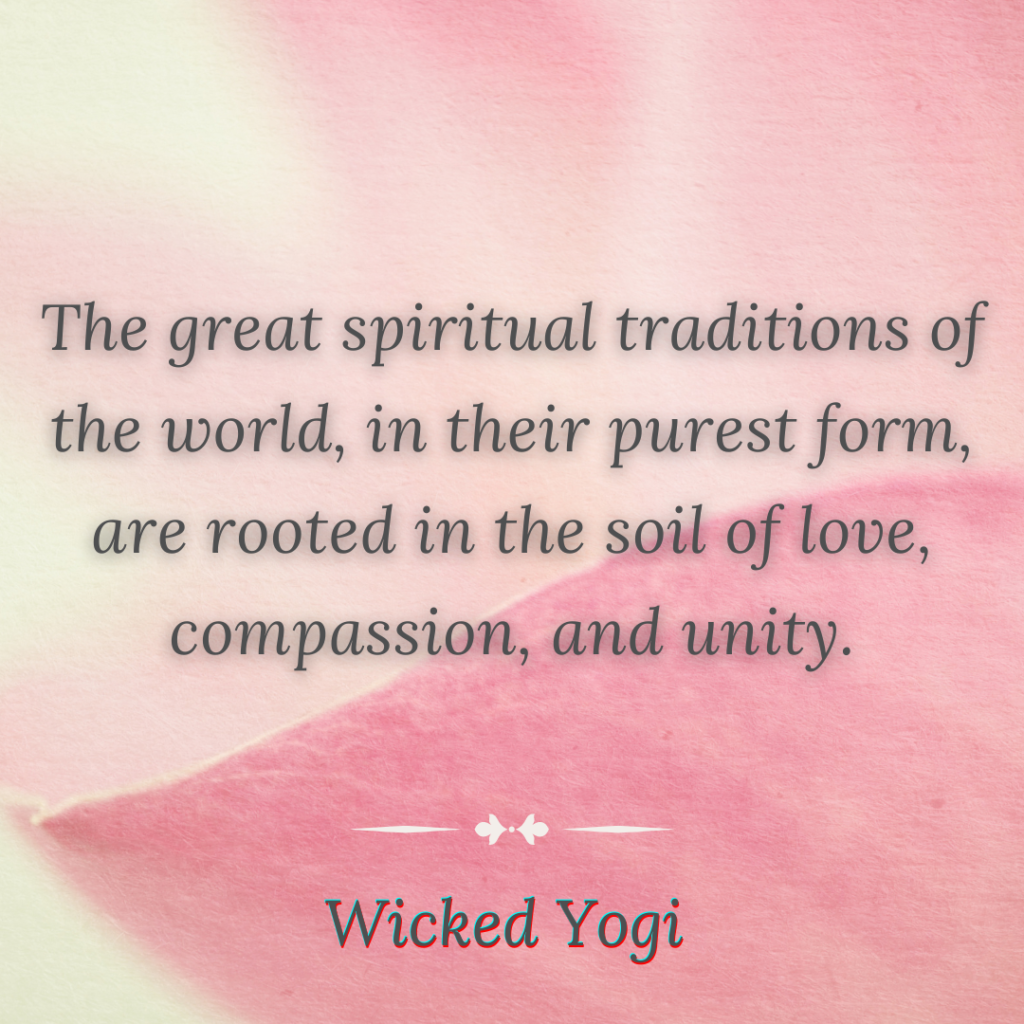As believers, we often find ourselves at a crossroads, caught between the lofty ideals of our faith and the harsh realities of a world divided by religious animosity. In the face of this discord, it is imperative that we pause and reflect upon the fundamental questions that lie at the heart of our spiritual journey. Chief among these is the discomfiting query: "Do I harbor hatred towards those who hold different religious beliefs than my own?" This question demands unflinching honesty and introspection, for the answer we provide will serve as a mirror, reflecting the true nature of our religious convictions.
If we find ourselves harboring such hatred, we must then ask ourselves: "Do I despise them because they truly warrant this animosity, or am I using a yardstick derived from and sanctioned by my religion to justify these feelings?" This line of inquiry strikes at the very core of our faith, challenging us to confront the dissonance between the love we profess and the hostility we may unwittingly nurture. It is a paradox that has plagued religious communities throughout history, as the noble precepts of compassion and understanding have, all too often, been overshadowed by the darker impulses of prejudice and intolerance.
"It is imperative that we pause and reflect upon the fundamental questions that lie at the heart of our spiritual journey."
To navigate this treacherous terrain, we must first acknowledge the uncomfortable truth that hatred is not an inherent feature of any true religious doctrine. The great spiritual traditions of the world, in their purest form, are rooted in the soil of love, compassion, and unity. They beckon us to see the divine spark in every human being, regardless of their religious affiliation or lack thereof. Why, then, do we so frequently find ourselves mired in the swamp of religious hostility?
The answer, I believe, lies not in the essence of our faith but in the human frailties that distort and corrupt it. When we allow our egos to supplant our empathy, when we prioritize our desire for supremacy over our yearning for understanding, we sow the seeds of hatred in the fertile ground of our own hearts. This realization should serve as a clarion call to every believer, urging us to embark upon a journey of self-discovery and transformation.
We must have the courage to ask ourselves: "Does my faith truly teach me to hate?" If the answer is no, as it surely must be for any authentic religious path, then we are compelled to confront the origins of the animosity we feel towards those who believe differently. This is no easy task, for it requires us to delve into the shadowy recesses of our own psyche, to excavate the fears, insecurities, and prejudices that we have allowed to take root.
"The great spiritual traditions of the world, in their purest form, are rooted in the soil of love, compassion, and unity."
Only by engaging in this courageous act of self-examination can we hope to uncover the true source of the religious hatred that plagues our world. And in doing so, we may just discover that the problem lies not in the richness of our beliefs but in the poverty of our understanding. For if we can learn to see the common humanity that binds us all, if we can recognize the universal yearning for love and connection that pulses beneath the surface of our religious differences, then we will have taken the first step towards healing the wounds of division.
This, then, is the challenge that confronts us as believers in a fractured world. To rise above the din of religious discord, we must first learn to listen to the whispers of our own hearts. We must have the humility to acknowledge our own shortcomings and the courage to confront the hatred that masquerades as faith. Only then can we begin to build bridges of understanding, to forge bonds of compassion that transcend the boundaries of belief.
Let us take up this challenge with open hearts and minds, recognizing that the quest to overcome religious hatred begins with the search for truth within ourselves. Let us be willing to ask the difficult questions, to confront the shadows that lurk within us, and to emerge stronger, wiser, and more compassionate as a result. For in the end, the measure of our faith will not be found in the intensity of our hatred but in the depth of our love. And it is this love, born of true understanding and respect, that will ultimately guide us towards a world in which the beauty and wisdom of all religious traditions can be celebrated as a source of unity, rather than division.




